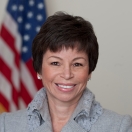
President Obama believes that for America’s women, economic security is a key component of economic opportunity. April is National Financial Literacy Month, and we’d like to take this opportunity to discuss the ways in which financial education can help women adapt to a changing world and workforce and improve the stability of American families and our economy.
The Women in America report, a collaboration between the White House Council on Women and Girls, the Office of Management and Budget, and the Department of Commerce, found that women are particularly vulnerable to financial insecurity. Although working women account for a larger share of family earnings, pay disparities between men and women persist. In fact, studies show that even after accounting for factors such as education or time spent away from the labor force, women still earn less than men.
These disparities add up over time. As a result, women often receive smaller social security payments decades later, and have less financial resources to build retirement savings in 401(k) or IRA accounts. At the same time, because women tend to live longer than men, they have to save more for retirement. The average woman has less money, and therefore needs more savings than her male counterpart. Women also control the majority of household consumer spending. This means that for today’s women and girls, financial literacy is essential.
In recent surveys, two out of every three women say that they feel they have little knowledge of financial products and services. These women are less able to plan for retirement, less able to save for their children’s educations, and are more likely to fall victim to deceptive, abusive, or predatory financial practices.
This is one of the many reasons President Obama fought for the passage of last year’s Dodd-Frank Wall Street Reform and Consumer Protection Act. The Act created the Consumer Financial Protection Bureau, which has made promoting financial literacy and accessibility one of its top priorities. We’ve all had the experience of looking at a loan or credit card agreement and becoming overwhelmed by the amount of complex legal language. The Bureau will work with financial services companies to make sure that in the future, these agreements are written simply enough that every consumer can understand them. In addition, the Bureau as the Vice-Chair of the Financial Education and Literacy Commission will work closely with the Treasury Department, which chairs the Commission, to help coordinate and optimize the financial education efforts provided across the Federal government.
President Obama knows this is an effort that must go beyond the federal government, and requires partnerships with the private sector. This is why on January 29, 2010 the President signed an Executive Order establishing the President’s Advisory Council on Financial Capability. The Council is tasked with advising the President and the Treasury Secretary on methods to strengthen and enhance coordination between existing public and private-sector financial education programs and on methods to identify effective financial capability approaches. He also believes that financial empowerment is one of the building blocks of a fair, transparent, and competitive marketplace.
The Obama Administration looks forward to increasing economic understanding, security, and opportunity for all.To find more resources designed to help you make more informed financial choices as a consumer, visit http://www.mymoney.gov/category/topic1/women.html. For information specific to the activities of the Bureau and for links to advice for consumers on money matters, visit the Consumer Financial Protection Bureau at www.consumerfinance.gov/blog. Send thoughts or ideas to the President’s Advisory Council on Financial Capability at OFE@treasury.gov.
Valerie Jarrett is Senior Advisor to the President for Intergovernmental Affairs and Public Engagement and Chair of the White House Council on Women and Girls


